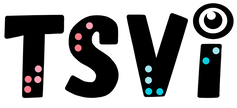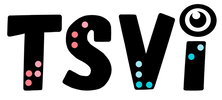- Home
-
Learn
- History of VI >
- Legislation & Laws >
- Vision Professionals >
-
VI Program Resources
>
- Program Printables
- Itinerant Teaching Tips
- Year at a Glance
- VI Program Handbook
- Caseload Analysis
- Organization & Time Management
- Professional Development
- Teacher Standards
- Professional Ethics
- Awards & Recognition
- APH Scholar Program
- Professional Organizations
- Certification Organizations
- Dealing with Challenges
- Professional Publications >
- Relatable Books for All Ages >
- Family Resources >
- Plan
- Basics
-
Teach
- Teaching Strategies >
-
Compensatory Skills Instruction
>
-
Social Skills
>
-
Self Determination
>
- Body Image & Acceptance
- Making Personal Goals
- My Vision Presentation
- My Self-Description
- Create a Personal Data Sheet
- Disclosure Decision
- Disability Statement
- Requesting Help
- Fighting Fears
- My Circle of Support
- Personal Responsibility
- Advocate for Safe Enviroments
- Having Picture Taken
- Coping with Change
- Aging Eyes
- Physical Characteristics
- Political Activism
- Laws Regarding Persons with Disabilities
-
Sensory Efficiency
>
-
Independent Living
>
- Orientation & Mobility Instruction >
- Recreation & Leisure >
-
Career & Vocation
>
-
Grow
- Complete Set Bonus >
-
Recorded Presentations
>
- Webinar: Tips for Being a "Physically Fit" TVI
- Webinar: The Art of Teaching the ECC
- Webinar: Virtual & F2F Strategies
- Webinar: Foundations of Teaching the ECC in the Age of Virtual Instruction
- Webinar: Itinerant Teaching Strategies
- Webinar: Using Themes to Teach the ECC
- Webinar: Conducting a FVLMA
- Webinar: Selecting the Right AT
- Webinar: Developing SMARTER Goals
- Webinar: Determining Service Intensity Using the VISSIT
- Webinar: Activities to Teach the ECC
- Webinar: Accessible Content for BLVI
- Webinar: Accommodations for VI
- Webinar: MIMO Strategies & Activities
- Webinar: SIDPID Strategies & Activities
- Webinar: Standard Course of Study Strategies & Activities
- Webinar: Job Tasks for Job, Career & Life
- Shop
- Jobs
Convergence InsufficiencyBy: Carmen Willings
teachingvisuallyimpaired.com Updated November 18, 2022 Convergence Insufficiency (CI) is a near vision problem that has gained public recognition. Students with CI can present with a normal eye exam, but have significant difficulty performing close work (i.e., reading, computer work, desk work, playing video games, doing crafts, etc.). According to Optometrists Network, Convergence Insufficiency is "the leading cause of eyestrain, blurred vision, double vision (diplopia), and/or headaches." Convergence Insufficiency (CI) is a common binocular (two-eyed) vision disorder in which the eyes do not work at near easily. It interferes with a person's ability to see, read, learn, and work at near distances. A person can pass the 20/20 eye chart test and still have convergence insufficiency. Treatment that is typically recommended by optometrists includes either passive (prism lenses) to active (office-based vision therapy with home reinforcement). Eye surgery is rarely, if ever, recommended.
CI is an eye teaming problem in which the eyes have a strong tendency to drift outward when reading or doing close work (exophoria at near). If the eyes do drift out, the person is likely to have double vision. To prevent double vision, the individual exerts extra effort to make the eyes turn back in (converge). This extra effort can lead to a number of symptoms which interfere with the ability to read and work comfortably at near. Symptoms may include: eyestrain, headaches, blurred vision, diplopia (double vision), sleepiness, difficulty concentrating, movement of print while reading, loss of comprehension after short periods of reading or performing close activities, frequent loss of place, squinting rubbing, closing or covering an eye. Symptoms will be worsened by illness, lack of sleep, anxiety, and/or prolonged close work. CI may lead to suppression of vision in one eye causing loss of binocular vision and depth perception. Poor binocular vision may have a negative impact on many areas of life, such as coordination, sports, judgment of distances, eye contact, motion sickness, etc. Recommended treatment by optometrists for Convergence Insufficiency is vision therapy. As with any other visual diagnosis, a diagnosis of Convergence Insufficiency in and of itself does not guarantee that a student will be eligible or in need of school based vision services. If a student is found to be eligible, these services would NOT include vision therapy as vision therapy is not provided by a teacher of students with visual impairments. It is provided under the optometrist or those specially trained in the implementation as it is a medical model. The optometrist may also recommend school accommodations that may assist the student throughout the day. These recommendations are generally simple to provide and may include using a line guide or a bookmark to keep their place while reading, positioning books on a slant board or incline, receiving a copy of notes or information presented on the board and being seated closer to the board. The school can provide these accommodations regardless of a students eligibility for school based vision services. |
History of Visual Impairments
Professional Practice
Vision Professionals
Professionalism
Teacher Resources
Professional Publications
VI Book Resources
Family Resources
VI Referrals
Medical vision exams
visual diagnosis
fvlma
|
|
Teaching Students with Visual Impairments LLC
All Rights Reserved |
- Home
-
Learn
- History of VI >
- Legislation & Laws >
- Vision Professionals >
-
VI Program Resources
>
- Program Printables
- Itinerant Teaching Tips
- Year at a Glance
- VI Program Handbook
- Caseload Analysis
- Organization & Time Management
- Professional Development
- Teacher Standards
- Professional Ethics
- Awards & Recognition
- APH Scholar Program
- Professional Organizations
- Certification Organizations
- Dealing with Challenges
- Professional Publications >
- Relatable Books for All Ages >
- Family Resources >
- Plan
- Basics
-
Teach
- Teaching Strategies >
-
Compensatory Skills Instruction
>
-
Social Skills
>
-
Self Determination
>
- Body Image & Acceptance
- Making Personal Goals
- My Vision Presentation
- My Self-Description
- Create a Personal Data Sheet
- Disclosure Decision
- Disability Statement
- Requesting Help
- Fighting Fears
- My Circle of Support
- Personal Responsibility
- Advocate for Safe Enviroments
- Having Picture Taken
- Coping with Change
- Aging Eyes
- Physical Characteristics
- Political Activism
- Laws Regarding Persons with Disabilities
-
Sensory Efficiency
>
-
Independent Living
>
- Orientation & Mobility Instruction >
- Recreation & Leisure >
-
Career & Vocation
>
-
Grow
- Complete Set Bonus >
-
Recorded Presentations
>
- Webinar: Tips for Being a "Physically Fit" TVI
- Webinar: The Art of Teaching the ECC
- Webinar: Virtual & F2F Strategies
- Webinar: Foundations of Teaching the ECC in the Age of Virtual Instruction
- Webinar: Itinerant Teaching Strategies
- Webinar: Using Themes to Teach the ECC
- Webinar: Conducting a FVLMA
- Webinar: Selecting the Right AT
- Webinar: Developing SMARTER Goals
- Webinar: Determining Service Intensity Using the VISSIT
- Webinar: Activities to Teach the ECC
- Webinar: Accessible Content for BLVI
- Webinar: Accommodations for VI
- Webinar: MIMO Strategies & Activities
- Webinar: SIDPID Strategies & Activities
- Webinar: Standard Course of Study Strategies & Activities
- Webinar: Job Tasks for Job, Career & Life
- Shop
- Jobs

